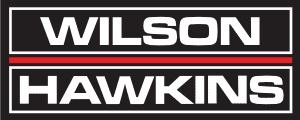When are blocks managed directly by the freeholder?
There are several reasons why the freeholder might directly manage the blocks, including:
- If the RTM or RMC are not established because the residents have not exercised their Right to Manage or have not formed a company (RMC) and this could also be a preference. Hence, the freeholder will retain management responsibilities.
- The lease might mention that the freeholder is responsible for managing the property (usually this is identified in older leases)
- In the case the current RMC fails to perform its duties, it is being dissolved or does not comply with legal requirements
Benefits/Drawbacks for residents?
A major benefit includes the vested interest freeholders have on their asset which should inevitably result in a high quality upkeep and maintenance of the block. This will naturally benefit all leaseholders knowing that any issues on communal areas shall be addressed by the landlord directly.
The Drawback instead could be the lack of transparency as the freeholder possesses property management software that can be used and checked by the leaseholders. Residents might be less aware of the issues affecting their property and community and this can also cause disagreements between the leaseholders which will be difficult to navigate as there will be no partial intermediator.
How can we help freeholders?
A block management company provides a range of services that help freeholders effectively operate their land. These services include maintenance and repairs, financial management, legal and compliance assistance, administrative assistance, insurance arrangements, and long-term planning.
Maintenance and repairs include routine cleaning, gardening, and structure repairs. Budgeting, collecting service charges, and generating financial reports are all examples of financial management activities. Legal and compliance services ensure that regulatory requirements are met, and agreements are executed. Administrative support includes record keeping and acting as a liaison between the freeholder and the leaseholders. Insurance plans include obtaining proper building insurance and managing claims.
Long-term planning services handle reserve funds and coordinate large-scale renovation projects. By providing these services, a block management business helps freeholders retain property value, perform legal duties, and develop

